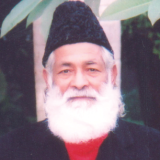Pakistan
Country Profile
There were no significant changes in the human rights situation in Pakistan during the year.
Significant human rights issues included credible reports of: unlawful or arbitrary killings, including extrajudicial killings; enforced disappearance; torture and cases of cruel, inhuman, or degrading treatment or punishment by the government or its agents; harsh and life-threatening prison conditions; arbitrary detention; political prisoners; transnational repression against individuals in another country; arbitrary or unlawful interference with privacy; punishment of family members for alleged offenses by a relative; serious abuses in a conflict, including reportedly unlawful civilian deaths and enforced disappearance; serious restrictions on freedom of expression and media freedom, including violence against journalists, unjustified arrests and disappearances of journalists, censorship, criminal defamation laws, and laws against blasphemy; serious restrictions on internet freedom; substantial interference with the freedom of peaceful assembly and freedom of association, including overly restrictive laws on the operation of nongovernmental organizations and civil society organizations; restrictions of religious freedom; restrictions on freedom of movement; coerced or forced return of individuals to a country where they would likely face torture or persecution; serious government corruption; serious government restrictions on domestic and international human rights organizations; extensive gender-based violence, including domestic or intimate partner violence, sexual violence, child, early, and forced marriage, female genital mutilation/cutting, and other forms of such violence; crimes involving violence or threats of violence targeting members of religious, racial and ethnic minorities including members of the Pashtun and Hazara communities; threats of violence motivated by antisemitism; enforcement of laws criminalizing consensual same-sex sexual conduct between adults; crimes involving violence or threats of violence targeting lesbian, gay, bisexual, transgender, queer, or intersex persons; and significant or systematic restrictions on workers’ freedom of association.
The government rarely took credible steps to identify and punish officials who may have committed human rights abuses.
Violence, abuse, and social and religious intolerance by militant organizations and other nonstate actors, both local and foreign, contributed to a culture of lawlessness. Terrorist violence and human rights abuses by nonstate actors contributed to human rights problems, with terrorist violence increasing during the year. Terrorist and cross-border militant attacks against civilians, soldiers, and police caused hundreds of casualties. Military, police, and other law enforcement agencies continued to carry out significant campaigns against militant and terrorist groups.
Cases
Imprisoned
For Further Reference
Full U.S. Department of State Human Rights Country Report
U.S. Department of State International Religious Freedom Country Report
U.S. Commission on International Religious Freedom Annual Report Chapter
U.S. Department of State Trafficking in Persons Report Country Narrative
Report of the Working Group on the Universal Periodic Review
Human Rights Watch World Report Country Chapter
Amnesty International Annual Report Country Chapter
Freedom House Freedom in the World Country Report


